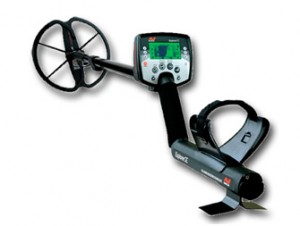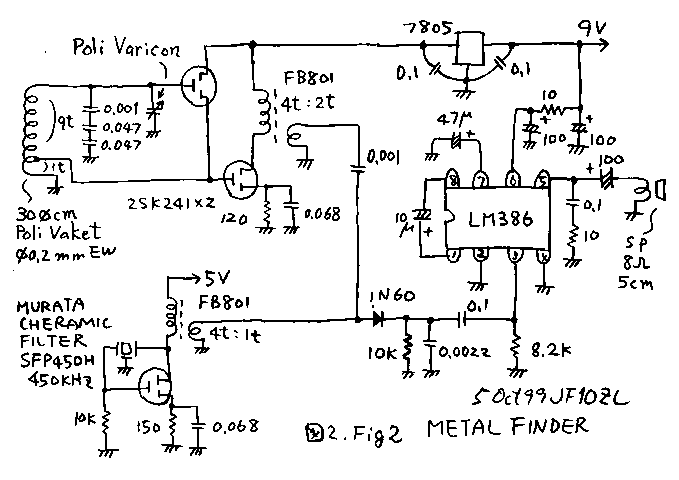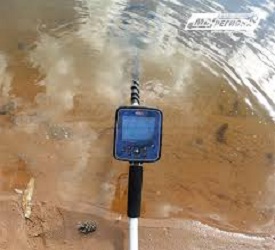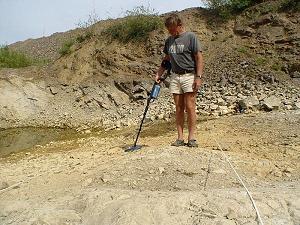Metal detector repairs-how to fix your metal detector In the category Metal Detectors Videos more articles and learn more information about Metal detector repairs-how to fix your metal detector Reviews Price Specifications Features Image manuals videos Accessories All this in metal detectors for gold.
Metal detector repairs-how to fix your metal detector-With the increase in the number of people who use the metal detector, it became necessary to identify how to fix the devices, metal detector repair your needs, services of repair of metal detectors online is the best way to deal with the problems posed by the technical failures that arise in the use of metal detectors. The increasing use of non-professional users of metal detectors has resulted from the increasing need to fix the metal detector. Basic DIY repair detector.
Read Also : security metal detectors repairs history how they work rentals
You are in the metal detecting hobby? If so, it is important to know how to fix your metal detector to avoid additional expenses. You never know how much repair shops will charge these days. Besides, you’re not so sure of the quality of service it can offer. So it is best to start learning how to repair a metal detectors yourself to save more money and earn more from your metal detecting finds.
Read Also : Repair of XP Gmaxx coil
Bounty Hunter Metal Detector Repairs
The reform of the metal detectors is popular because of the growing use of treasure hunting and security purposes. Metal detector is a portable electronic device that penetrates the Earth’s magnetic field to find traces of minerals. This metal can be either neglected pieces of aluminum or the value of the coins, jewelry and other buried treasures. Part of the appeal of the metal detectors is that operator is not known, keep the amateurs and professionals to scan continuously for new sources of minerals and more promising. These devices can be hacked, usually sand, soil, wood and other materials, making the most of fair game for treasure hunters.
How to Repair Faulty Metal Detector Coils
Can metal detectors be repaired?
Yes, metal detectors can be repaired if they are damaged or not functioning properly. Many metal detector manufacturers offer repair services for their products, either through authorized service centers or directly through the manufacturer.
If your metal detector is still under warranty, it is recommended to contact the manufacturer for repair or replacement options. If your metal detector is out of warranty, you can still contact the manufacturer or a third-party repair service to inquire about repair options and costs.
In some cases, simple repairs or maintenance tasks such as replacing batteries, adjusting settings, or cleaning the device may be all that is needed to get your metal detector working again. However, for more complex issues or internal damage, professional repair services may be necessary.
What to do when metal detector is not working?
If your metal detector is not working properly, here are some steps you can take to troubleshoot and potentially fix the issue:
1. Check the batteries: Make sure the batteries are properly installed and fully charged. Replace old or weak batteries with new ones. Some metal detectors may have a low battery indicator light to alert you when the batteries need to be replaced.
2. Check the settings: Ensure that the settings on your metal detector are properly adjusted for the type of metal detecting you are doing (e.g., ground balance, sensitivity, discrimination). Incorrect settings can impact the performance of the detector.
3. Clean the search coil: Dirt, debris, or moisture on the search coil can cause interference or affect the detector’s sensitivity. Clean the search coil with a soft cloth or brush to remove any buildup that may be impeding its function.
4. Check the connections: Ensure all the electrical connections are secure and free of dirt or corrosion. Check the cable connections between the control box and the search coil for any damage or loose connections.
5. Perform a factory reset: Some metal detectors have a factory reset option that allows you to reset the detector to its original settings. Refer to the user manual for instructions on how to perform a factory reset.
6. Contact customer support: If you have tried troubleshooting steps and the metal detector is still not working, it may be a more serious issue that requires professional repair. Contact the manufacturer’s customer support or a certified repair technician for assistance.
By following these steps, you may be able to diagnose and address the issue with your metal detector and get it back in working order.
How can I make my metal detector work better?
To make your metal detector work better and optimize its performance, consider the following tips:
1. Properly ground balance: Adjust the ground balance setting on your metal detector to match the mineralization levels in the soil you are detecting in. This will help eliminate false signals and improve target detection accuracy.
2. Adjust sensitivity settings: Fine-tune the sensitivity settings on your metal detector based on the depth and size of targets you are searching for. Higher sensitivity settings can increase the detection range but may also result in more false signals.
3. Use headphones: Using headphones can enhance your ability to hear faint signals from targets, especially in noisy or crowded environments. This can help you detect targets more effectively and improve your overall detecting experience.
4. Swing the coil properly: Maintain a consistent and steady swinging motion with the search coil at a uniform height above the ground. Overlapping your swings and covering the search area systematically can help ensure you don’t miss any targets.
5. Conduct regular maintenance: Keep your metal detector clean and properly maintained, including cleaning the search coil and shaft, checking for loose connections, and replacing worn or damaged parts as needed.
6. Research and practice: Familiarize yourself with your metal detector’s features, settings, and capabilities. Practice using the detector in different environments and conditions to improve your skills and maximize its performance.
7. Upgrade accessories: Consider investing in additional accessories such as a larger search coil, pinpoint probe, or coil cover to enhance the functionality and versatility of your metal detector.
By following these tips and techniques, you can improve the effectiveness and efficiency of your metal detector, increasing your chances of finding valuable targets and enhancing your metal detecting experience.
How do you get a metal detector to work?
To get a metal detector to work, follow these general steps:
1. Power on the detector: Insert fresh batteries or ensure the rechargeable batteries are fully charged. Turn on the power switch or button to activate the metal detector.
2. Adjust the settings: Set the discrimination, sensitivity, and ground balance settings based on the type of metal detecting you plan to do and the ground conditions in your search area.
3. Hold the detector correctly: Hold the metal detector with the search coil close to the ground, parallel to the surface. Keep the coil steady and move it in a side-to-side sweeping motion as you walk.
4. Listen for signals: Listen for audio signals or visual indicators on the control panel when the detector detects a metal target. Different metal detectors may produce different tones or signals for different types of targets.
5. Identify and pinpoint targets: Use the discrimination feature to distinguish between different types of metals and selectively target specific items. Some metal detectors may also have a pinpoint mode to help you locate the exact position of the target.
6. Dig and recover targets: Once you have identified a target, use a digging tool like a trowel or shovel to carefully excavate the target from the ground. Be mindful of local regulations and property owner permissions when digging.
7. Repeat the process: Continue sweeping the search coil over the ground, listening for signals and detecting targets. Practice and patience are key to improving your metal detecting skills and finding valuable items.
Remember to read the user manual provided with your metal detector for specific instructions on operation, settings, and maintenance. It’s also important to familiarize yourself with local metal detecting laws and regulations before using your metal detector in public areas.
Related Articles
- objectives of surveillance security system
- SCAN 2D METAL DETECTOR
- pro pointer garrett
- How To Find Gold Metal Detecting Where To Find Gold Metal Detecting
- how does the jeohunter detect voids
- pulse induction metal detectors STINGER 2
- T 2 metal detector
- Metal detectors underground Bobcats
- Gold prices rise because the political situation in Middle East
- Latest surveillance camera wireless home control workers












